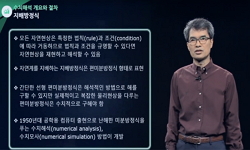A Proton Exchange Membrane Fuel Cell (PEMFC) system is spotlighted as a military power source, which has many benefits such as mobility, efficiency and quietness. PEMFC requires pure hydrogen as a fuel and on-board reforming is a realistic way to supp...
http://chineseinput.net/에서 pinyin(병음)방식으로 중국어를 변환할 수 있습니다.
변환된 중국어를 복사하여 사용하시면 됩니다.
- 中文 을 입력하시려면 zhongwen을 입력하시고 space를누르시면됩니다.
- 北京 을 입력하시려면 beijing을 입력하시고 space를 누르시면 됩니다.
https://www.riss.kr/link?id=A94511730
- 저자
- 발행기관
- 학술지명
- 권호사항
-
발행연도
2011
-
작성언어
Korean
- 주제어
-
KDC
550
-
자료형태
학술저널
- 발행기관 URL
-
수록면
1558-1563(6쪽)
- 제공처
-
0
상세조회 -
0
다운로드
부가정보
다국어 초록 (Multilingual Abstract)
A Proton Exchange Membrane Fuel Cell (PEMFC) system is spotlighted as a military power source, which has many benefits such as mobility, efficiency and quietness. PEMFC requires pure hydrogen as a fuel and on-board reforming is a realistic way to supply hydrogen. For that purpose fuel processor was developed, but is difficult to apply in real applications due to its relatively long start-up time. Two step Water Gas Shift(WGS) reactors consisting of high and low temperature reactors (HTS and LTS, respectively) mostly delay start-up time. The objective of present study is to develop and apply computational models and to design start-up protocol of WGS reactors. Transient temperature analysis was performed in each reactor with various boundary conditions. The start-up time highly depends on the wall condition and heat supply rate to WGS reactors. The start-up time is decreased with high heat supply rate. The temperature of the HTS reaches to the target very fast with the isothermal wall conditions, but the adiabatic wall condition is better for heating LTS. The optimized start-up protocol is suggested considering the results.
목차 (Table of Contents)
- Abstract
- 1. 서론
- 2. 수치해석 모델
- 3. 검증
- 4. 결과
- Abstract
- 1. 서론
- 2. 수치해석 모델
- 3. 검증
- 4. 결과
- 5. 결론
- 후기
- 참고문헌
동일학술지(권/호) 다른 논문
-
자동화 공정을 사용한 I 형상/Y 형상/dual pore tubular scaffold 제작
- 대한기계학회
- 조용상(Yong Sang Cho)
- 2011
-
- 대한기계학회
- 이남우(Namwoo Yi)
- 2011
-
실리카 나노 입자를 이용한 자기조립 패턴 및 구조색 연구
- 대한기계학회
- 서한복(Han Bok Seo)
- 2011
-
- 대한기계학회
- 이성준(Sungjun Lee)
- 2011




 DBpia
DBpia






